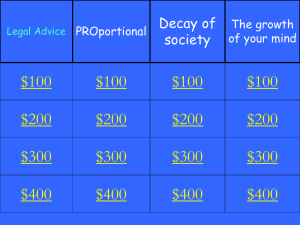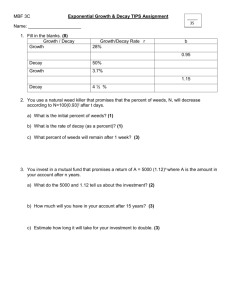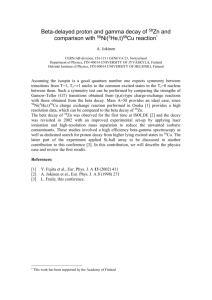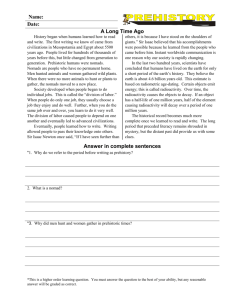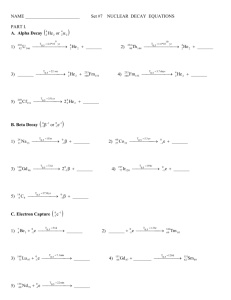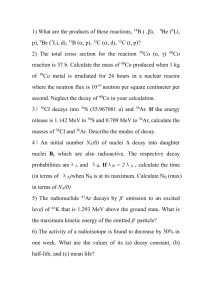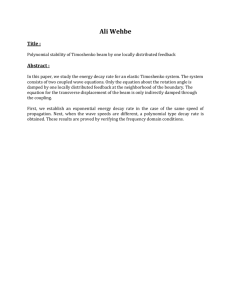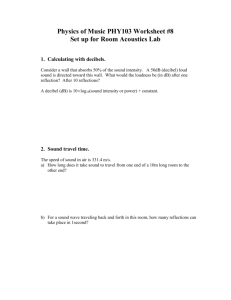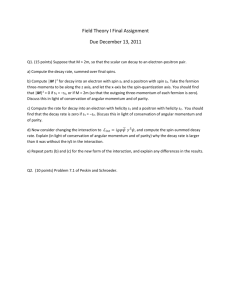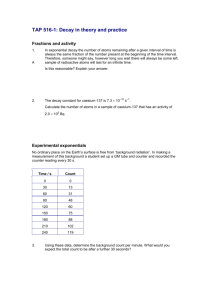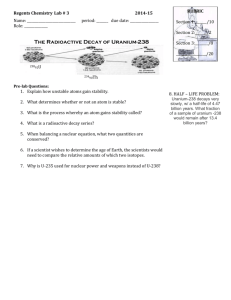Radioactivity Calculations IGCSE Worksheet
advertisement
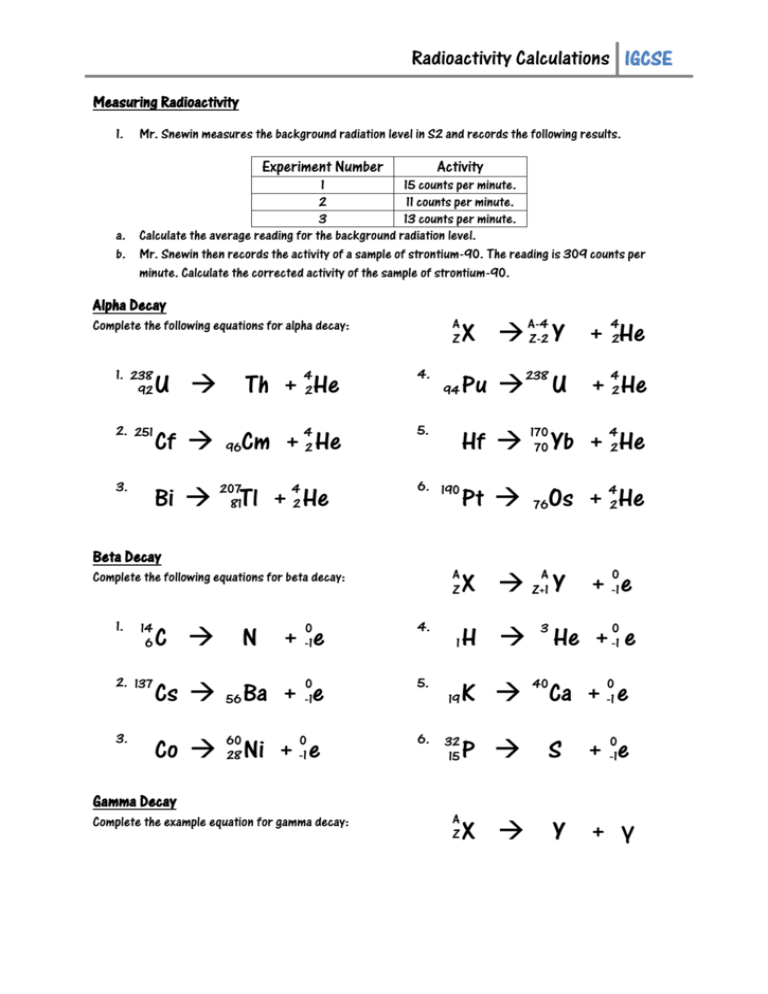
Radioactivity Calculations IGCSE Measuring Radioactivity 1. Mr. Snewin measures the background radiation level in S2 and records the following results. Experiment Number Activity 1 15 counts per minute. 2 11 counts per minute. 3 13 counts per minute. a. Calculate the average reading for the background radiation level. b. Mr. Snewin then records the activity of a sample of strontium-90. The reading is 309 counts per minute. Calculate the corrected activity of the sample of strontium-90. Alpha Decay Complete the following equations for alpha decay: A Z Xe Z-2 Yr + 2He A-4 4 1. 238 92 Ur 88 Th + 2 He 4. 242 94 Pu 92 Ur + 2 He 2. 251 98 Cf 96Cm + 2 He 5. 174 72 Hf 70 Yb + 2 He 3. 211 83 Bi Tl + He 6. 190 78 4 Pt 186 76Os + 2 He 234 4 247 207 81 4 4 2 Beta Decay Complete the following equations for beta decay: 238 170 4 4 3A Z Xu Z+1 Ye + -1 e 3 1 Hu 2 He + -1 e A 0 14 6 Cr 7Ng + -1e 4. 2. 137 55 Cs 56 Ba + -1e 5. 40 19 Kf 20Ca + -1 e 3. 60 27 Co 28 Ni + -1 e 6. 32 15 Pt 3216Ss + -10e 1. 14 137 60 0 0 0 Gamma Decay Complete the example equation for gamma decay: 3A Z 3 40 0 0 Xu Z Ye + 0 γ A 0 Radioactivity Calculations IGCSE Half Life Calculate the half lives of the following samples. 1. A sample of iodine-123 whose activity falls from 1000 Bq to 250 Bq in 14.4 hours. 2. A sample of technetium-99m whose activity falls from 200 Bq to 25 Bq in 18 hours. 3. A sample of strontium-90 whose activity falls from 500 Bq to 62.5 Bq in 86.4 years. Calculate the how long it would take for the following to decay to an activity of 1 Bq. 4. A sample of cobalt-60 (half life – 5.27 years) whose original activity is 64 Bq. 5. A sample of iodine-131 (half life – 8 days) whose original activity is 128 Bq. 6. A sample of polonium-210 (half life – 138 days) whose original activity falls is 32 Bq. Nuclear Fission 1. 2. 3. 4. 5. Assuming all three of the neutrons released from each fission reaction goes on to react, how many uranium-235 nuclei will split after... the first reaction? the second reaction? the third reaction? the fourth reaction? the fifth reaction? In which generation of reactions will you get... 1. 59,049 splits? 2. 1,594,323 splits? 3. 129,140,163 splits?
